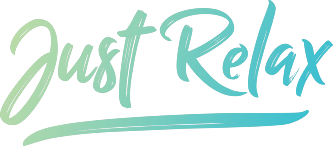
How do I start right ? “Practice makes perfect”
It is important for every beginner that the execution in the basic exercises fits perfectly. Before you handle heavy weights later – especially if you do dumbbell exercises alone at home – you should master the execution and the technique perfectly. Otherwise you run the risk of seriously injuring yourself and nobody wants that, right? In addition, you should pay particular attention to the back and leg exercises. Of course, you should not think that weight training is incredibly dangerous. It’s just that if you have a bad execution of the exercises in the long run, especially your back and your knees can suffer. That’s why we will now show you the best weight training exercises to slowly but surely get into the world of weight training.
Squats – the king exercise of weight training exercises
Involved muscles
- anterior thigh muscles (quadriceps)
- posterior thigh musculature (ischiocrural musculature)
- Gluteal muscles ( gluteus maximus)
- Muscles of the rear back
- Abdominal muscles and calves (less strong)
The stance during the exercise
The squat is considered the top exercise of weight training and not without reason. Especially here you should pay attention to the execution. The stand should be so that you stand about shoulder width and your feet form an angle of about 30 degrees. It is especially important that your knees point in the same direction as your feet during the entire exercise. If you feel unsteady at the beginning of the shoulder-width stance, you probably lack the necessary movement in your hips. Therefore, try to take a wider stance now. After a while you will gain the necessary flexibility.
The Execution
The exercise begins with a “backward push” of the hips. Then the thighs begin to bend. While going down in parallel, your buttocks and thigh muscles remain tense. Even though it may often seem nicer to let go. You should also be careful not to go down too fast. Otherwise you run the risk of “dropping”. This in turn would lead to a bad posture. The lowest point is reached when your buttocks are parallel to the floor. Now push up without pausing and make sure that your knees do not buckle inward. If you want to increase the difficulty level, you can use aids like a vibration plate.
Chest Press – The alternative to the bench press
Muscles involved
- Muscles of the fist
- Triceps
The Execution
This exercise is a great alternative to the conventional bench press. Here you first build up pectoral muscles to then later come to the bench press. Many try to bench press with too much weight and often endanger themselves. That’s why beginners should first try the shoulder press (here are a few good machines for home use). Here you simply grasp the handles of the machine and try to push the weight forward at 90 degrees to your legs. The final position is reached when your arms are fully extended. Try not to release your shoulders from the seat.
Deadlift – one of the most controversial weight training exercises
Muscles involved
- Lower body (legs + buttocks + calves)
- Torso (lower back + abdomen)
- Upper body (trapezius + latissimus + biceps + forearms)
The stance during the exercise
Here you should also stand shoulder-width, but a bit closer than in the squat. Your feet should point slightly outward and the bar should be very close to your shins. You should grip the bar slightly wider than shoulder width and preferably so that your arms do not touch the outside of your legs.
The execution
The bar is now over the middle of your foot. Now go down until your shins touch the bar. To start, push your chest out and press your lower back through. Attention: during the whole exercise you should make sure that your back stays straight. Now take a deep breath and pull the weight up your shins. Only then, when the bar has reached your knee, do the hips come into play. Push up the last few inches with your hips. The release of the weights is virtually the exercise only played in reverse. The exercise is finished when the weights are lowered to the floor.











